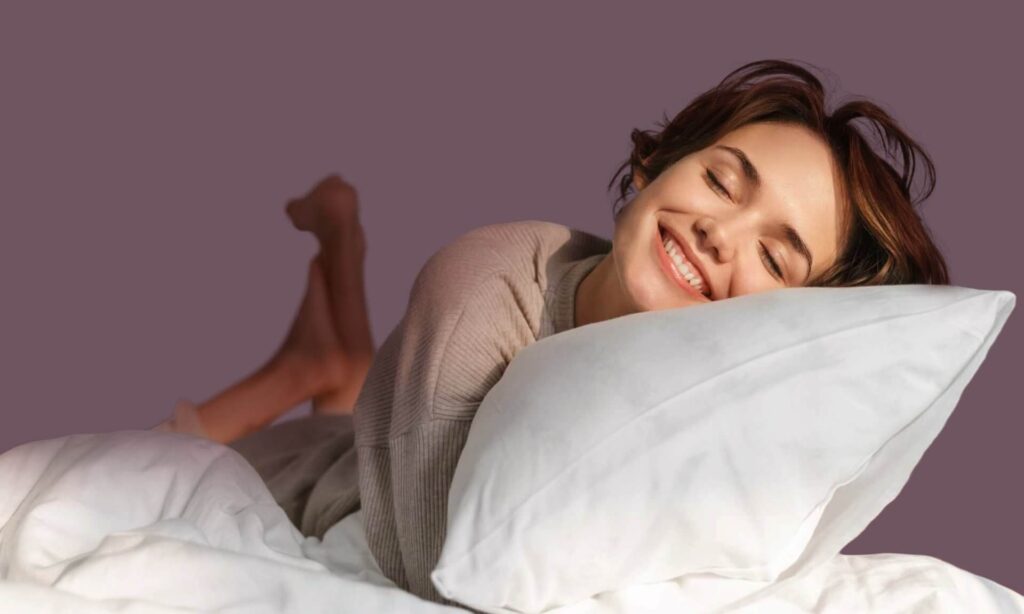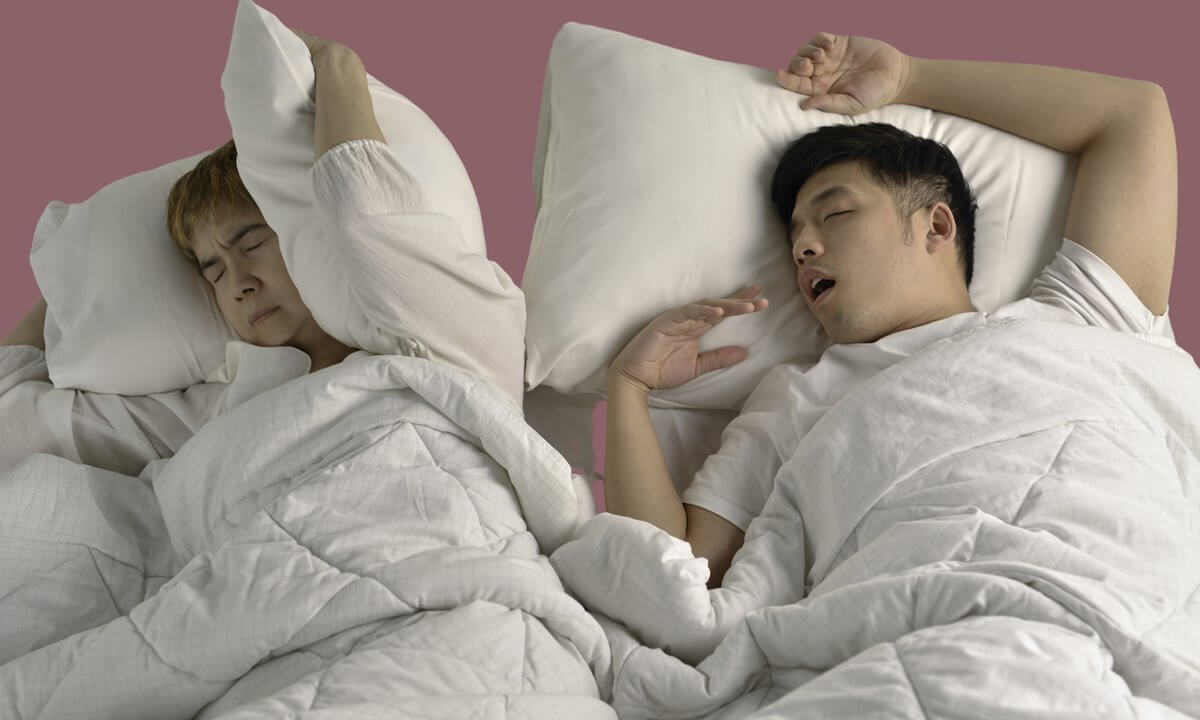Comprehensive Snoring and Sleep Apnea Therapies in New Orleans
No doctor’s referral? No problem! We welcome Snoring and Sleep Apnea patients with or without a doctor’s referral. Contact us today!
Reclaim Quality Sleep
Addressing Snoring and Sleep Discorded Breathing
Are you troubled by snoring, or does your partner’s snoring disrupt your sleep? Snoring, often a harmless sound, can also signal potential breathing obstructions leading to serious health issues such as Obstructive Sleep Apnea (OSA). Up to 50% of adults experience snoring, and while occasional snoring may be benign, persistent and intense snoring can be indicative of OSA.
When snoring becomes more than a sporadic occurrence, it’s essential to pay attention and consider seeking professional guidance. At TMJ and Dental Sleep Solutions of New Orleans, we provide safe and effective home sleep apnea testing and therapy to address your specific needs. Whether you’re a simple snorer or dealing with a potential sleep disorder like OSA, our team is here to offer insights and comprehensive solutions for restful nights.
Call our office today at (504) 354-9880 to take the first step towards reclaiming the quality rest you deserve.

Sleep Apnea
Understanding Sleep Apnea (OSA): An Overview
Sleep apnea is a common and potentially serious sleep disorder in which breathing repeatedly stops and starts throughout the night. This can lower the level of oxygen in the blood and cause a buildup of carbon dioxide. The brain reacts to the interrupted flow of oxygen by jolting the body awake, interrupting your sleep to allow you to breathe. This pattern can repeat itself 5 to 30 times or more each hour, all night long. Over the course of the night, these interruptions can prevent a person from reaching the deep levels of REM sleep that are so important for proper rejuvenation and functioning. This condition not only disrupts the quality of your sleep but also carries substantial implications for your overall health, elevating your risk of heart disease, stroke, high blood pressure, diabetes, mood disorders, and sexual disfunction in both men and women. If you snore loudly or feel tired despite a full night’s sleep, you may have sleep apnea.
There are three main types of sleep apnea:
Obstructive Sleep Apnea (OSA)
The most common form of sleep apnea, occurs when the throat muscles collapse, obstructing the airway and disrupting the flow of air into the lungs.
Central Sleep Apnea (CSA)
Occurs when the brain doesn't send proper signals to the muscles responsible for breathing.
Treatment-Emergent Central Sleep Apnea
Also known as Complex Sleep Apnea, occurs when a person initially diagnosed with OSA, through a sleep study, transitions to CSA when undergoing OSA therapy.
If you suspect you have sleep apnea, it’s essential you get tested. We offer a simple Home Sleep Test that you can do in the comfort of your own home. Prompt diagnosis and appropriate treatment not only alleviate symptoms but also have the potential to prevent complications such as heart problems, stroke, high blood pressure, diabetes, mood disorders and sexual dysfunction in both men and women. Don’t delay seeking professional guidance to enhance your sleep quality and overall well-being. Call us today (504) 354-9880 and we can help.
Cause and Risk Factors
Understanding the Cause and Risk Factors of Obstructive Sleep Apnea (OSA)
Obstructive Sleep Apnea (OSA) is a common sleep disorder characterized by repeated interruptions in breathing during sleep. These interruptions, known as apneas, occur when the muscles at the back of the throat relax excessively, causing a temporary blockage of the airway. Understanding the causes of OSA is crucial for effective diagnosis and treatment. Here are some key risk factors that contribute to the development of Obstructive Sleep Apnea:
Excess Weight and Obesity:
One of the primary risk factors for OSA is excess weight, particularly obesity. Extra fatty tissue around the neck and throat can exert pressure on the airway, leading to obstruction during sleep.
Neck Circumference:
Individuals with a thicker neck circumference may have a narrower airway, increasing the likelihood of airway obstruction. This is particularly relevant for men, as they tend to have thicker necks than women.
Narrowed Airway:
An inherited narrow throat increases the risk of OSA. Tonsils or adenoids also can enlarge and block the airway, particularly in children.
Micrognathia (small lower jaw):
A recessed or narrow lower jaw causes the person's tongue to fall backward, blocking the airway and causing symptoms of sleep apnea.
Genetics and Family History:
There is evidence to suggest that genetics play a role in the development of OSA. If you have family members with a history of sleep apnea, you may be at a higher risk of experiencing it yourself.
Age:
Aging is associated with changes in muscle tone and a decrease in the elasticity of the airway. As people age, the risk of developing sleep apnea increases.
Gender:
Men are generally at a higher risk of developing OSA compared to women. However, the risk for women increases if they are overweight, and it may also be influenced by hormonal changes.
Smoking and Alcohol Use:
Smoking can increase inflammation and fluid retention in the airway, contributing to obstructive sleep apnea. Additionally, the relaxing effects of alcohol can lead to increased muscle relaxation in the throat.
Nasal Congestion and Respiratory Conditions:
Chronic nasal congestion or conditions that affect the upper airway, such as allergies or sinus problems, can contribute to airflow obstruction during sleep.
Medical Conditions:
Certain medical conditions, such as hypothyroidism and acromegaly, can contribute to the development of OSA. Individuals with a history of stroke or heart failure may also be at an increased risk.
Understanding the causes and risk factors of Obstructive Sleep Apnea is essential for identifying individuals at risk and implementing appropriate interventions. If you suspect you or someone you know may have sleep apnea, call TMJ and Dental Sleep Solutions of New Orleans for a comprehensive evaluation and personalized treatment plan. Early detection and management can significantly improve sleep quality and overall health.
Symptoms
Recognizing the Signs: Common Symptoms of Sleep Apnea
Sleep Apnea is a sleep disorder that often goes undiagnosed, yet it can significantly impact both physical and mental health. Recognizing the symptoms of Sleep Apnea is crucial for timely intervention and effective management. Since many patients who suffer from sleep apnea are unaware of their condition, the first symptoms are usually recognized by their sleep partners. Here’s a comprehensive guide to understanding the common signs that may indicate the presence of Sleep Apnea:
Loud Snoring:
One of the hallmark symptoms of Sleep Apnea is loud and persistent snoring. The snoring may be intermittent and accompanied by pauses in breathing.
Pauses in Breathing:
Individuals with Sleep Apnea often experience episodes where breathing stops momentarily during sleep. These pauses, known as apneas, can last for a few seconds to a minute or longer.
Choking or Gasping:
Sudden awakenings accompanied by choking or gasping for air are indicative of Sleep Apnea. These episodes usually follow a pause in breathing.
Restless Sleep:
Sleep Apnea can lead to restless sleep, with individuals frequently tossing and turning in an attempt to find a comfortable breathing position.
Morning Headaches:
Waking up with a headache in the morning is a common symptom of Sleep Apnea. The repeated interruptions in breathing can result in decreased oxygen levels, leading to headaches.
Excessive Daytime Sleepiness:
Chronic fatigue and excessive daytime sleepiness are frequent complaints among individuals with Sleep Apnea. The interruptions in sleep prevent the attainment of restorative deep sleep, leaving individuals feeling tired during the day.
Difficulty Concentrating:
Cognitive impairments, such as difficulty concentrating and memory problems, can be associated with Sleep Apnea. The lack of quality sleep affects cognitive function and overall alertness.
Irritability and Mood Changes:
Sleep Apnea can contribute to irritability, mood swings, and increased susceptibility to stress. The disrupted sleep patterns impact emotional well-being.
Dry Mouth or Sore Throat:
Individuals with Sleep Apnea may wake up with a dry mouth or sore throat. The breathing difficulties can lead to mouth breathing, causing dryness and irritation.
High Blood Pressure:
Sleep Apnea is often associated with hypertension (high blood pressure). The repeated drops in oxygen levels during apneas can contribute to elevated blood pressure.
Frequent Nighttime Urination:
Sleep Apnea may be linked to an increase in nighttime urination. The condition can disrupt the normal sleep cycle, leading to more frequent trips to the bathroom during the night.
Sexual Dysfunction:
Individuals with Sleep Apnea may experience sexual dysfunction, including erectile dysfunction in men and a decrease in libido in both men and women. The impact of poor sleep on hormone balance and overall well-being can contribute to these issues.
If you or someone you know is experiencing these symptoms, it’s essential to seek medical evaluation. Dr. Delaune at TMJ and Dental Sleep Solutions of New Orleans can conduct a thorough assessment, including sleep studies, to diagnose Sleep Apnea accurately. Early diagnosis and appropriate treatment can significantly improve sleep quality and overall well-being. Don’t ignore the signs—give us a call and take proactive steps towards better sleep and a healthier life.
Relationships
Navigating Relationship Harmony Amidst Snoring and Sleep Apnea
The impact of snoring and sleep apnea on relationships extends far beyond mere sleep disturbances. Initially dismissed as a minor annoyance, snoring can evolve into a disruptive force, significantly affecting the tranquility of the bedroom. Sleep disruptions experienced by both partners can lead to fatigue and irritability for the non-snoring partner. The emotional toll on intimacy is profound, with the snoring partner potentially feeling guilt or embarrassment, while the other may develop resentment or a sense of distance due to disrupted sleep. Furthermore, sleep apnea introduces breathing interruptions, prompting health and safety concerns for both individuals.
Managing these issues becomes paramount, as the silent struggle to cope can foster confusion and frustration within the relationship. Recognizing and addressing these sleep-related challenges through proper diagnosis and treatment becomes essential. By doing so, we can transform the nighttime discord into a journey towards relationship harmony, ensuring both partners can enjoy restful nights and nurturing a deeper connection.

Rejuvenate Your Well-Being and Strengthen Your Relationship Through Effective Snoring and Sleep Apnea Treatment
Thankfully, treating snoring and sleep apnea can do wonders not just for your health, but also for your relationship. Many have found great success with oral appliance therapy. This method involves wearing a mouthguard-like device during sleep.
The appliance works by subtly moving the jaw or tongue forward. This action helps prevent the soft tissues in the throat from obstructing the airway. Consequently, it can significantly lessen snoring and the symptoms of sleep apnea with its associated health complications.

Treatment Options
Explore Better Sleep with Our Treatment Options:
Traditional approaches to treating sleep apnea often involve the use of a Continuous Positive Airway Pressure (CPAP) machine. These devices supply pressurized air to patients through a mask and tube, proving highly effective for individuals with moderate or severe Sleep Apnea. However, nearly half of patients find the CPAP uncomfortable, bulky, noisy, and inconvenient, leading to decreased compliance. Fortunately, there exists a more patient-friendly alternative: Oral Appliance Therapy (OAT).
Discover True Freedom with Oral Appliance Therapy (OAT):
Experience the ultimate in portability and convenience with Oral Appliance Therapy – a game-changer compared to the traditional CPAP machine.
Oral Appliance Therapy
Oral Appliance Therapy (OAT): A Comfortable Solution
Oral Appliance Therapy (OAT) utilizes a dental appliance or retainer designed to gently reposition the jaw forward, preventing airway obstruction during sleep. Custom tailored to each individual, these appliances offer a significantly more comfortable and convenient option compared to the CPAP machine.
Key Advantages of OAT:
Personalized Comfort:
Since each oral appliance is crafted to fit the unique contours of a patient's mouth, it provides a customized and comfortable solution, addressing individual needs and concerns.
Ease of Use:
Unlike the CPAP machine, OAT is quiet, unobtrusive, and doesn't require complex adjustments. Patients appreciate the simplicity and ease of incorporating oral appliances into their nightly routine.
Compact and Portable:
Say goodbye to cumbersome equipment. OAT offers a compact and travel-friendly solution that fits seamlessly into your lifestyle. The small size of the oral appliance makes it easy to pack and carry, ensuring you can maintain your sleep therapy regimen wherever life takes you.
No Power, No Problem:
Unlike the CPAP machine, Oral Appliance Therapy requires no electricity. This means you can enjoy the benefits of uninterrupted sleep therapy even in off-grid or travel situations. Whether you're camping, on a plane, or in a location without power access, OAT ensures you never have to compromise on your sleep health.
Water-Free Convenience:
Bid farewell to the hassles of distilled water and complex setups. OAT eliminates the need for distilled water, streamlining your travel experience. Enjoy the freedom to travel without worrying about finding power outlets or carrying bulky water supplies – OAT offers unmatched convenience on the go.
Effective for Mild to Moderate Cases:
Oral appliance therapy is particularly effective for individuals with mild to moderate sleep apnea. It offers a reliable alternative for those who cannot tolerate or prefer an option other than the CPAP machine.
Take control of your sleep health without sacrificing freedom. Embrace the portability and convenience of Oral Appliance Therapy. Contact us today, (504) 354-9880 to explore how OAT can transform your sleep experience, wherever life’s journey may lead.
How We Can Help
How We Can Help Alleviate Your Snoring and Sleep Apnea with Oral Appliance Therapy
At TMJ and Dental Sleep Solutions of New Orleans we specialize in providing effective solutions for Obstructive Sleep Apnea (OSA) through the innovative approach of Oral Appliance Therapy. If you’ve been grappling with sleep disruptions and suspect you may have OSA, we’re here to guide you toward restful nights and improved overall well-being.
Our Approach: Oral Appliance Therapy
Our Dental Sleep Practice takes a personalized and patient-centered approach to address OSA, utilizing Oral Appliance Therapy as a non-invasive and comfortable alternative to traditional treatments. This therapy involves the use of a custom-fit oral appliance, similar to a mouthguard, designed to reposition the jaw and keep the airway open during sleep.
How Oral Appliance Therapy Works:
Customized Solutions: We create a custom-fitted oral appliance tailored to your unique dental structure, ensuring optimal comfort and effectiveness.
Ease of Use: Unlike CPAP machines, oral appliances are compact, portable, and easy to use, making them a convenient option for those who find traditional treatments challenging.
Improved Compliance: The comfort and simplicity of Oral Appliance Therapy often lead to better patient compliance, promoting consistent usage for maximum effectiveness.
Non-Invasive and Quiet: Say goodbye to masks and machines. Oral appliances are silent, non-intrusive, and seamlessly integrate into your nightly routine.
Why Choose TMJ and Dental Sleep Solutions of New Orleans:
Expertise: Our team of experienced professionals, led by Dr. Delaune, is well-versed in Dental Sleep Solutions and dedicated to providing personalized solutions for OSA.
Comprehensive Assessment: We conduct a thorough evaluation to determine the severity of your OSA, ensuring that Oral Appliance Therapy is the right fit for you.
Ongoing Support: From the initial consultation to the continued management of your therapy, we are committed to supporting you every step of the way.
Take the Next Step:
If you suspect you have Obstructive Sleep Apnea or are seeking an alternative to traditional treatments, Dr. Delaune and his team at TMJ and Dental Sleep Solutions of New Orleans is here to help. Schedule a consultation today, and let’s work together to unlock restful nights and improve your overall sleep quality. Your journey to a healthier, more rejuvenating sleep begins with us.
Frequently Asked Questions about Sleep Apnea
If your parents suffer from sleep apnea, your risk increases by 50 percent. While genetics play a role, other factors like a narrowed airway, excess weight, nasal congestion, alcohol consumption, and smoking can contribute to sleep apnea. Fortunately, Dr. Delaune provides a range of treatments to alleviate symptoms and promote restful sleep.
Yes, untreated sleep apnea can pose serious health risks, including heart disease, stroke, high blood pressure, and diabetes. Swift intervention is crucial after diagnosis. Dr. Delaune offers effective treatments to address sleep apnea, ensuring you can enjoy a peaceful night's sleep while safeguarding your overall health.
Complementing CPAP use or oral appliance therapy with lifestyle changes can significantly reduce sleep apnea symptoms. Natural remedies include weight loss, regular exercise, limiting alcohol consumption, avoiding tobacco use, and positional therapy. Dr. Delaune advocates a holistic approach, tailoring treatments to your unique needs for comprehensive and lasting relief.
Take control of your sleep health and explore effective solutions with Dr. Delaune. Contact us today, (504) 354-9880 to schedule a consultation and embark on the journey to better sleep and improved well-being.
